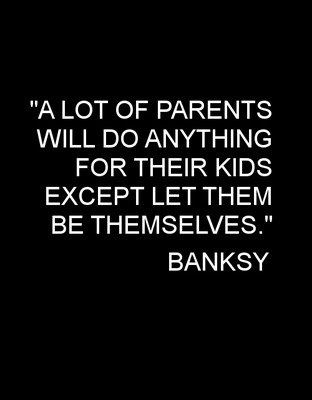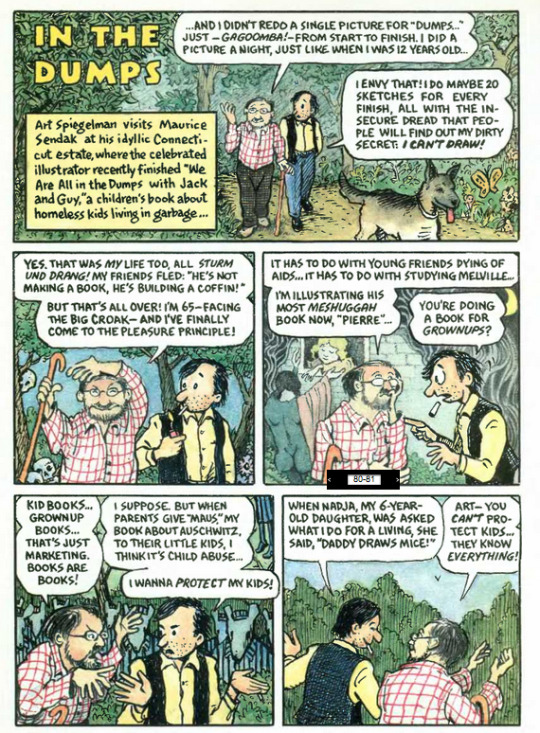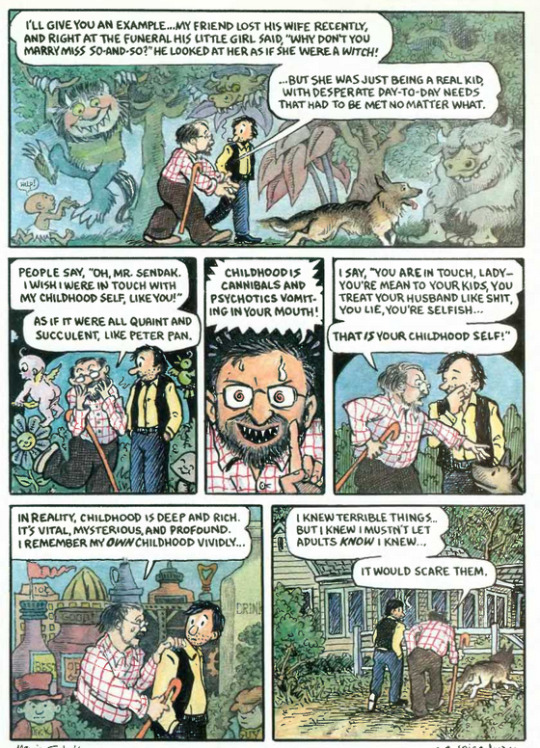Quote
Those who speak the old language and have no wish to change, those who regard it as a hallmark of rationality or morality to speak just that language, will regard as altogether irrational the appeal of the new metaphors–the new language game which the radicals, the youth, or the avant-garde are playing. The popularity of the new ways of speaking will be viewed as a matter of “fashion” or “the need to rebel” or “decadence.” The question of why people speak this way will be treated as beneath the level of conversation–a matter to be turned over to psychologists or, if necessary, the police.
Richard Rorty, Contingency, Irony, and Solidarity. (via self-and-society)
186 notes
·
View notes
Quote
"OK, let me get this straight, you think that they sent unmanned Apollo Saturn V rockets up into space, to perform an orbit, orbital transfre, trans lunar injection, moon orbit insertion, landing and return to earth? You would of course be aware of the limitations of the onboard computer, the AGC was not capable of carrying out all the tasks of getting to the moon and back by itself, each stage was loaded by the astronauts.
So your moon hoax theory now rests on the premise that they had the technology to get to the moon and back, that it was good enough to fool the USSR, a country that was already capable of space flight, and tracking operations, and that it was unguided and unmanned.
Do you realise that the Apollo flights were only just possible to perform if there was a crew onboard, the margins of error were incredibly tight, and you are proposing that the technology was actually not only capable of lunar flight and return, but actually exceeded the available technology available at the time?
There were 17 Apollo missions, 9 of which reached lunar orbit, 6 landed, and only 2 major incidents with Apollo 1 and 13.
And not once did anyone on the project before, during or after ever suggest that these flights never happened, not one astronaut, not one technician, not one member of the tracking and guidance teams scattered around the world, not one Russian tracking and guidance operator, not one, nobody, everyone involved believes it happened, because they were there.
'They sent hardware', yes, they did, they sent manned hardware."
Steve Taylor via Google Plus
1 note
·
View note
Text
The Most Dangerous Drugs Known To Man
In the United States we have 5 classifications for the regulation of drugs, called Schedules by (The Controlled Substances Act)CSA signed into law by Richard Nixon in 1970.
Schedule 1 is defined thusly (emphasis mine):
The drug or other substance has a high potential for abuse.
The drug or other substance has no currently accepted medical use in treatment in the United States.
There is a lack of accepted safety for use of the drug or other substance under medical supervision.
Critically, this is considered the worst category of drugs under the law. They may not be prescribed and their production is restricted by both quotas and stringent requirements for obtaining a license to do so.
Before I provide any examples of Schedule 1 drugs, lets take a look at Schedule 2 first:
The drug or other substance has a high potential for abuse.
The drug or other substance has a currently accepted medical use in treatment in the United States or a currently accepted medical use with severe restrictions.
Abuse of the drug or other substances may lead to severe psychological or physical dependence.
I've emphasized the important parts of the guidelines. In the case of Schedule 1 there's no medical benefits to the substance and that they're too dangerous to be used even under medical scrutiny regardless of their other effects. While Schedule 2 is for substances that do have a known medical benefit to the substance, but may be addictive.
This list of drugs is maintained by the DEA and FDA, and occasionally legislation will be passed to put a drug on one schedule or another.
The List
Here's a list of some Schedule 2 substances:
Cocaine
Morphine
Pentobarbital (lethal injection)
Amphetamine & its salts (Adderall)
Methamphetamine (Meth)
Methylphenidate (Ritalin, Concerta)
Opium & Laudanum
Phencyclidine (PCP, Angel Dust)
Methadone
Oxycodone & Hydrocodone
Pethidine (Demerol)
Wow. That's a hell of a list there. Yet, we've found uses for many of these drugs and work hard to avoid their addictive nature.
What could be worse? Whats so bad that they had to include a category that would qualify a substance so dangerous that even the medical community can't be trusted with them?
Here's a the list of some Schedule 1 controlled substances:
Diacetylmorphine (Heroin, Smack, Tar)
Etorphine (M99)
Methaqualone (Quaalude)
GHB (Liquid X, Lollipop)
MDMA (Ecstasy, E, X, Molly)
Mescaline (Peyote)
LSD (Acid)
DMT (Ayahuasca)
Psilocybin & Psilocin (Psychedelic Mushrooms, Shrooms, Mushies)
Cannabis (Marijuana, Weed)
There's Heroin for one. Well, thats pretty bad. It's twice as potent as the already dangerous Morphine and even more addictive.
But do any of these others seem odd to you? I mean, there's M99, a chemical thousands of times more powerful than Morphine, and GHB has been used as a date rape drug. So I can sorta see what they were going for.
People sometimes overdose on Molly and Quaaludes (or at least used to). Though many of those are due to impurities. There's been a lot of horror stories about Acid, but little of it holds much water, but its already starting to strain my suspension of disbelief.
I mean, are Peyote and Ayahuasca really that dangerous? It's still allowed on Native American reservations in the US. I haven't heard of a lot of bad coming from that. Besides, I'm not aware of any religious exemption for Heroin.
But then we get to weed and its just confusing. The number of accepted uses for THC and associated cannabinoids is well documented. It's being legalized in individual states against the wishes of the federal government. How did it ever end up on the same list as Heroin? Yet Cocaine was considered more medically useful than THC? Seriously?
If I were going to rate the most dangerous drugs known to man, useful or not, I'd have to start with Heroin, Meth, Cocaine, and their friends. I really don't think Weed is going to even come up as a possibility except maybe as a joke.
MDMA was originally being used to treat PTSD and help others with traumatic experiences. Psilocybin and psilocin have been used to successfully treat cluster headaches and OCD.
A disproportionate number of these substances are easily obtained from local flora and some are even chemicals found naturally in human neurochemistry. Of the psychoatice compounds in the list, very few of them are habit-forming at all. It's interesting how they avoided mentioning dependency-forming as a requirement for Schedule 1.
It becomes clear pretty fast that this list has little to do with its stated goals and is more about appealing to political interests.
An interesting economic repercussion of substances like this occurring naturally is that there is significantly less incentive to crime, additionally for substances that aren't likely to form a dependence, this is also could not be a prime motivator. While the substances are legal, there is no constriction of supply, so demand will be met easily. It seems strange that these drugs, which are considered some of the least harmful by medical researchers should be classed above others that are measured to be the most dangerous.
What could the priorities of a society be that would villainize weed and shrooms over coke and meth?
The Cost
In 2004 it was estimated that there are nearly 45 thousand state and federal prisoners serving sentences for marijuana possession and manufacture/sale alone. In 2005 there were 786,545 people charged with marijuana-related offenses.
According to the US Department of Justice we're spending about a billion dollars year just keeping them in prison, and an additional $8 billion in court costs to prosecute them.
Some of these prisoners are serving 20 years to de facto life. Many will die there.
Let that sink in.
6 notes
·
View notes
Photo
Thanks to LovingDamnation for posting Paul's work, its dead on.
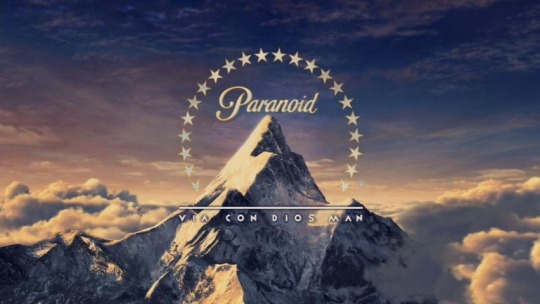
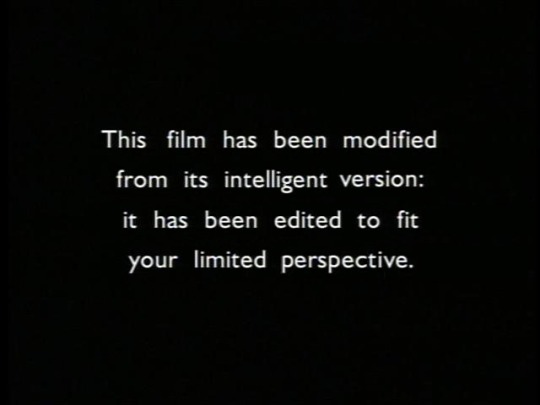

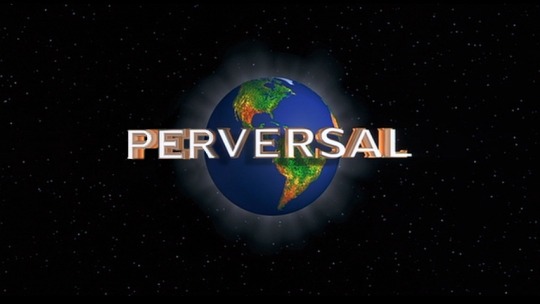
Some artwork by my good friend Paul.
2 notes
·
View notes
Text
Movie Review: Chronicle
I just saw Chronicle, I can't yet say whether it was good or bad, but what disturbs me is that I've run through my head almost the exact scenarios presented in the film a million times throughout my life - as recently as this week, and as far back as 1998.
I consider the film to be an accurate representation of how those types of people would react in those situations.
The fudge factor was low overall, but it was very apparent that huge chunks were truncated for convenience and the film felt short as a result. Either there's another 20+ minutes on the cutting room floor, or the writer just skipped over shit he didn't feel like dealing with.
The first half of the film threw in oddball philosophical quotes, which seemed to imply a depth to one of the main characters, but was never elaborated on, and in fact seemed completely antithetic to his personality. I actually wished it had been elaborated on, seeing that the last half of the film seemed to me to be the perfect time to focus more on those philosophies.
As a result of this, I felt the movie was good, but not good enough for anyone to bother with a full re-cut, which is a shame, because I'm pretty sure the movie could have been completely amazing with a little more work, since its glaringly obvious that this movie is an american spin on Akira. Not nearly as good, but not bad either.
0 notes
Audio
0 notes
Audio
0 notes
Text
To verb or not to verb: A Conlinguistic Adventure with Turner
Playing with language in my head again. I think I've finally gotten somewhere with a noun-based, sort of verb-less languge.
To explain, english has nouns, and verbs. Imagine a language with no real verbs. Condiser the short sentence: "Bob hits Jo." Here "hit" is the verb, its the "action word" as we learned in English class. What do we do without verbs? How do we communicate action?
Here's my idea. Maybe verbs really communicate "state of being".
Lets rephrase the short sentence in a little more detail, and explain what it really means: "Bob is currently in the state of hitting Jo" or conversely, "Jo is in the state of being hit by Bob".
We're not just describing an action, we're describing the state of the two of individuals.
So lets drop the specifics of state and make things painfully general and kind of weird, but bear with me for a moment: "Bob is in an aggressive state in respect to Jo in a receiving state."
No jokes about how Bob is the pitcher and Jo is the catcher.
Now we have two subjects and a lot of words about their really vague interaction. The downside of this approach is that specifics can only be attained through idioms and/or excessive wordiness. I'm okay with this downside, its just an experiment.
So lets condense some of the words down, to get a feel for how you might "use" this language experiment: "aggroBob toJo"
So we have much the same general information, but we lack specificity. We don't get the intensity of the action and it lacks an accustomed directness. But maybe thats all we need - in a hunter-gatherer sense - to get by. Intensity could be conveyed by word stress and body language for instance.
If you know much about language you might be saying "Well okay, but you've just dumbed down verbs, not gotten rid of them." and if you don't know much about language you're probably saying "So what?"
To the latter, I'd say that language drives communication, the sharing of ideas, and influences how you communicate those ideas. Playing with language lets you look at things another way. To the former, there's more, keep reading.
Lets go to a new example, since it'll be easier for me to demonstrate: "The hawk dives at the mouse sitting in the grassy field."
There's quite a few qualifiers in this example, and its because I'm wrapping "state" to be a very general encompassing thing. That means we're dropping adjectives too, and replacing them with stateful nouns. But I'll get to that in a second.
We have the noun "hawk" assume that word in this imaginary language is similar, perhaps "hoko". But in this language, there is no direct translation for "hawk" exactly, its more like "a hawk in its natural state". This is very context dependent, especially from what little or a lot you may know about various breeds of hawk, but we will assume its differentiated from other states like "passive", "aggressive", "at rest", "in its natural residence", etc; so for the sake of argument I will say that its natural state is "in flight". So "hoko" means a hawk in flight.
So if a noun inherently carries state with it, then we have many words meaning the same object, but in a different state. There are some real human languages that do something very similar, so its not that far fetched an idea.
I'm going to manipulate the word itself in such a way that it becomes a different word, refering to the same type of object, but in a different state, like so:
hoko - hawk in flight (natural state)
hocho - hawk in its nest (natural residence)
hoto - hawk diving (aggro)
hodo - hawk on branch (passive)
hoku - hawk's state is being affected (receives)
..and so on.
Then we'll make up a word for the mouse to use, "mosu" and apply similar conversions to it:
mosu - mouse scurrying (natural)
mohu - mouse in its burrow (residence)
mofu - mouse biting (aggro)
movu - mouse sitting on the ground (passive)
moso - mouse's state is being affected (receives)
..and now field we will just call "filo" and assume a fields natural state is to be grassy. So now we should be able to construct some semblance of a sentence with just those stateful nouns:
"Hoto movu, filo."
Meaning something like "Hawk dives at mouse, grassy field."
I think in practice, to make the language useful root words like "hoko" would need to be longer to compensate for their depth of meaning, I'm thinking 4 syllables would be standard to allow for an overall pattern to remain the same while still being able to have many potential states, but without resorting to affixes - that is to say, adding things onto the begining or end or infixes - where you add syllables in the middle of words.
We could add some other states or connecting words, like something meaning "in the vicinity of" would be nice for this example. But again, there's enough information to be able to assume from context alone.
I think its important to keep in mind that each of these states are context dependant. So if we change the context, suddenly the meaning could shift dramatically.
Say we defined a word for defining the state of the weather like "wetu" meaning "pleasant weather" or in context it could mean "the type of weather you expect", whatever that is for your context. Take Chicago in Winter for instance - "pleasant" is probably not generally something you get from weather in Chicago during the winter. In that context "cold" is probably more appropriate. And we'll also say that "wethu" is stormy weather, the aggro state of weather for your context. For Chicago in the winter, this could well be translated "blizzard".
Now if we say "Wethu, hoko." we would possibly translate this instance of "hoko" differently from the "hoko" in the previous example, since hawks tend to avoid flying around when its stormy if they can help it. So we could translate it as "Stormy weather, hawk in tree hiding from rain." Since a much more natural state for a hawk in a storm might be taking refuge in a tree from the storm.
Now lets add "state modifiers", they're not really directly analogous to something in English, except maybe as a form of metaphor, but lets try it out. The state modifier I'm going to use is a "a" prefix to the word being used as the modifier. With that knowledge lets make a new sentence: "Wethu, mosu ahoko." I would translate that into "Stormy weather, mouse in tree hiding from rain." or more literally "Stormy weather, mouse hiding from rain, but in a tree like a hawk, rather than in its burrow."
With that knowledge we can construct a lot more complex sentences using these rather simple constructs, building up context and an understanding in the receiver of your communication of the environment and what the actors in it are doing. So we haven't avoided verbs altogether, but we've exchanged "action words" for "contextual state", which I think is pretty cool.
0 notes
Audio
Here's part 1 of "The Experiment" live event at Neo! The recording turned out better than expected even.
0 notes
Audio
0 notes
Audio
0 notes
Audio
0 notes
Audio
0 notes
Text
Handegg
   -x
0 notes
